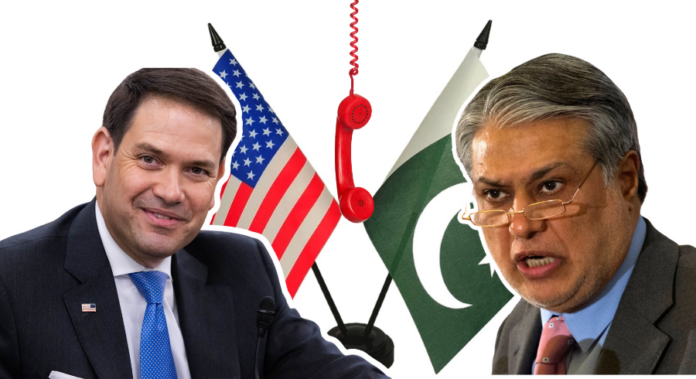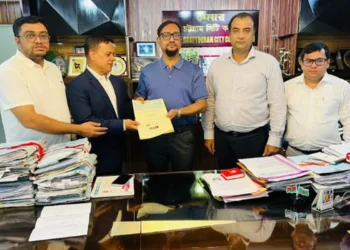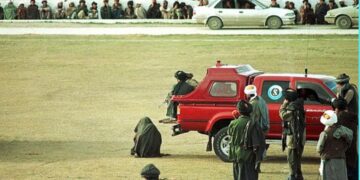Photo Credit: Profit Pakistan Today
U.S.-Pakistan Trade Relations: Tariffs and Economic Cooperation
The current state of U.S.-Pakistan trade relations is a topic of significant interest, particularly with ongoing discussions about tariffs and the potential for cooperation in critical minerals. During a recent call between U.S. Secretary of State Marco Rubio and Pakistan Foreign Minister Ishaq Dar, these issues were front and center. The talks highlighted not only the challenges of US-Pakistan trade relations but also opportunities for expanding commercial ties.
Secretary Rubio emphasized that the 29% U.S. tariff on Pakistan has been a key issue in trade relations. This tariff is part of the broader discussion about balancing trade deficits, with the U.S.-Pakistan trade deficit reaching $3 billion in 2024, a 5.2% increase compared to 2023. The need for fair and balanced trade relations was a focal point of their conversation, reflecting both nations’ interests in improving economic ties.
Critical Minerals: A New Avenue for U.S.-Pakistan Trade
The discussions also turned to the topic of critical minerals, which are essential for the modern economy. The U.S. has been actively seeking to diversify its sources of these minerals, which are crucial for technology sectors like electric vehicles and electronics. Pakistan, with its abundant reserves of critical minerals, has the potential to become a key partner for the U.S. in this regard.
During the call, Rubio expressed interest in exploring how both countries can cooperate in the critical minerals sector. With Pakistan’s resources of lithium, cobalt, and rare earth elements, there’s a significant opportunity to build stronger U.S.-Pakistan trade relations through this emerging sector. Pakistan, in turn, sees this as a chance to boost its economy and strengthen commercial ties with the U.S.
Exploring the Future of US-Pakistan Trade and Security Cooperation
Beyond economic discussions, the U.S. and Pakistan also discussed immigration, law enforcement, and security cooperation. U.S.-Pakistan relations have long been tied to counterterrorism and border security, and both sides continue to see this cooperation as critical to regional stability.
Immigration and Law Enforcement Cooperation
US-Pakistan cooperation on immigration and law enforcement remains vital. Rubio highlighted the importance of working together to combat illegal immigration and improve security across borders. This issue is crucial as both countries deal with transnational threats. Pakistan’s efforts in counterterrorism and supporting law enforcement operations were also highlighted as areas of positive collaboration.
Read More: US-Iran Nuclear Deal: Upcoming Talks Could Spark a Breakthrough
Security Concerns and Afghanistan
The situation in Afghanistan remains a primary concern for both the U.S. and Pakistan. Rubio and Ishaq discussed how U.S.-Pakistan cooperation could help address the evolving security challenges in Afghanistan and the wider region. Pakistan’s role in combating extremism and terrorism in the region continues to be critical, and both countries emphasized the importance of further collaboration.
The Future of U.S.-Pakistan Trade Relations: Focus on Tariffs, Minerals, and Security
Looking ahead, U.S.-Pakistan trade relations are expected to evolve with a focus on resolving tariff issues and expanding cooperation in the critical minerals sector. Both countries are committed to exploring new opportunities for collaboration, which could include areas such as technology, trade, and security.
The potential for a more balanced trade relationship is a central goal, as both sides work to overcome trade barriers and increase mutual economic benefits. The focus on critical minerals is especially significant, as it offers a chance to strengthen U.S.-Pakistan trade relations while meeting the growing demand for these essential materials globally.
Conclusion: Strengthening U.S.-Pakistan Trade and Cooperation
In conclusion, the discussions between U.S. Secretary of State Marco Rubio and Pakistan’s Foreign Minister Ishaq Dar reflect the ongoing challenges and opportunities in U.S.-Pakistan trade relations. With issues such as tariffs, critical minerals, and immigration at the forefront, both nations are working to forge stronger ties. By addressing these key issues, the future of U.S.-Pakistan trade and cooperation looks promising, with significant potential for growth and collaboration in the years ahead.


















